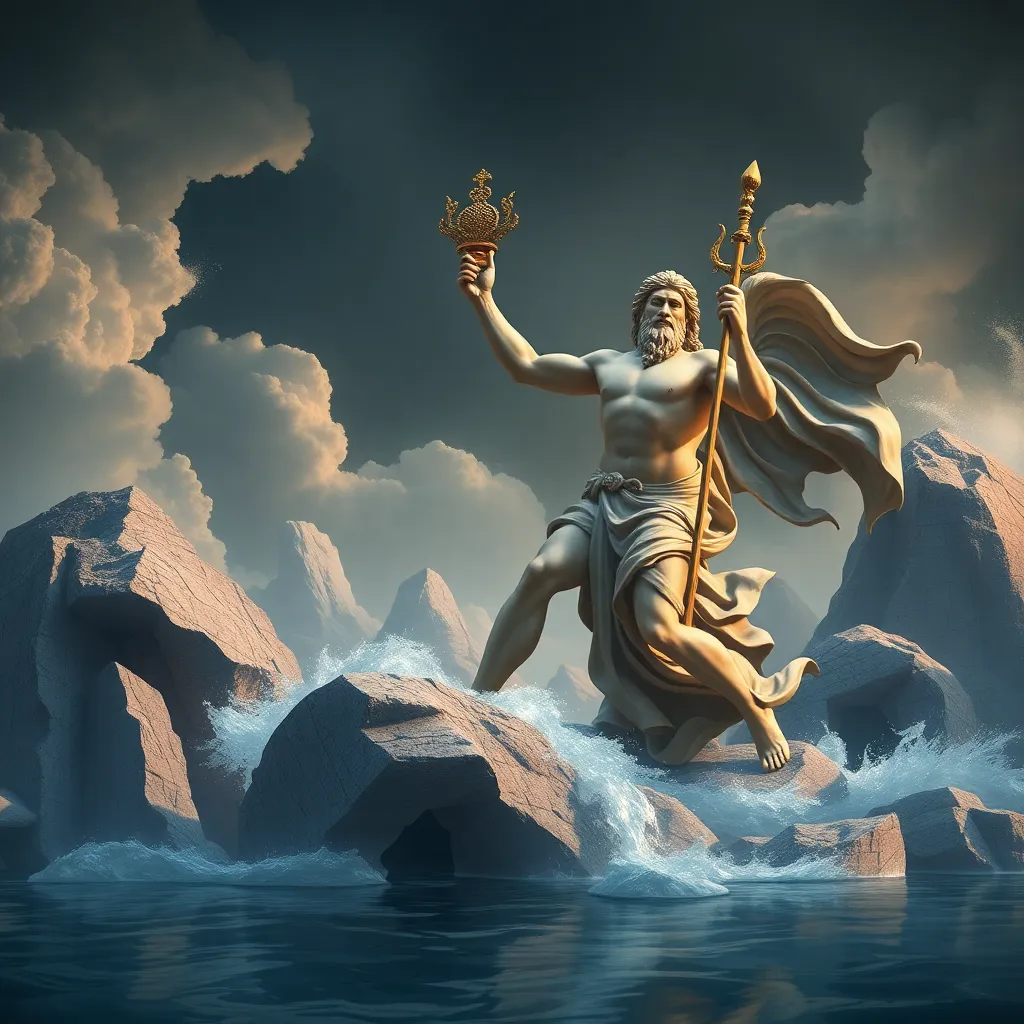The Myth of Perseus: A Reflection of Ancient Greek Values
I. Introduction
The myth of Perseus is one of the most celebrated tales in ancient Greek mythology. It tells the story of a hero who undertakes a perilous quest, confronting formidable foes and ultimately achieving greatness. This myth not only entertains but also serves as a lens through which we can understand the values and beliefs of ancient Greek culture.
Myths in ancient Greece were of paramount significance, providing insights into human nature, morality, and social norms. They encapsulated the collective wisdom of the society, reflecting ideals such as bravery, intelligence, and the complex relationship between mortals and the divine.
This article aims to explore the values reflected in the myth of Perseus, delving into themes of heroism, courage, fate, intelligence, gender dynamics, and the legacy of this heroic figure in modern culture.
II. The Hero’s Journey: Perseus as the Ideal Greek Hero
The hero’s journey is a common narrative structure in Greek mythology, characterized by a call to adventure, trials, and ultimate triumph. Perseus exemplifies this archetype, emerging from humble beginnings to become a celebrated hero.
Perseus is the son of Zeus, the king of the gods, and Danaë, a mortal princess. His divine lineage sets him apart from ordinary mortals and underscores the belief in the importance of ancestry and the influence of the gods on human lives.
Key characteristics that define Perseus as a hero include:
- Courage: He willingly confronts dangerous challenges.
- Resourcefulness: He uses gifts from the gods to aid his quest.
- Determination: Perseus persists in his goals despite the odds.
III. Themes of Courage and Bravery
One of the most significant aspects of Perseus’ myth is his quest to slay Medusa, a fearsome creature whose gaze can turn anyone to stone. This task is a test of his bravery and a demonstration of his willingness to face danger head-on.
The portrayal of courage in Perseus’ journey highlights the cultural implications of bravery in ancient Greece. Heroes were expected to embody valor and fearlessness, often putting themselves at risk for the sake of honor and glory. This quest not only serves as a personal challenge for Perseus but also reflects the broader societal values of courage and heroism.
IV. The Role of Fate and Divine Intervention
The influence of the gods plays a crucial role in Perseus’ journey. From receiving gifts such as the reflective shield from Athena to the winged sandals from Hermes, divine intervention underscores the belief that the gods are active participants in human affairs.
In Greek thought, the balance between fate and free will is a complex theme. While Perseus is destined for greatness, his choices and actions shape his journey. This duality teaches valuable lessons on humility and respect for the divine, emphasizing that while mortals can strive for greatness, they must acknowledge the forces beyond their control.
V. The Value of Intelligence and Resourcefulness
Perseus exemplifies the importance of intelligence and resourcefulness in Greek culture. His strategic use of the gifts bestowed upon him by the gods highlights the value placed on wit and cunning. Rather than relying solely on brute strength, Perseus demonstrates that cleverness can be just as powerful in overcoming obstacles.
When comparing Perseus to other Greek heroes, such as Heracles or Achilles, it becomes evident that while physical strength is essential, the ability to think critically and adapt to situations is equally crucial in achieving success.
VI. Gender Roles and the Representation of Women
The myth of Perseus also opens a dialogue about gender roles and the representation of women in ancient Greek society. Medusa, once a beautiful maiden, becomes a symbol of fear and female power after being cursed by Athena. Her transformation reflects the complexities of female representation in mythology, embodying both allure and horror.
Additionally, Andromeda, the princess whom Perseus saves, represents another facet of womanhood. While she is portrayed as a damsel in distress, her story also highlights themes of sacrifice and the value of loyalty. The dynamics between Perseus, Medusa, and Andromeda offer insights into the societal views on gender during ancient Greek times.
VII. The Legacy of Perseus in Modern Culture
The legacy of Perseus endures in modern culture, greatly impacting literature, art, and popular media. His story has been retold in various forms, from classical literature to contemporary films and novels, showcasing the timeless appeal of the hero’s journey.
Moreover, the values reflected in Perseus’ myth continue to resonate in contemporary storytelling, emphasizing themes of courage, intelligence, and the struggle against adversity. The reinterpretation of his story in modern contexts allows for a deeper understanding of these enduring values.
VIII. Conclusion
In conclusion, the myth of Perseus encapsulates numerous values that were integral to ancient Greek culture, including bravery, intelligence, and respect for the divine. These themes not only reflect the ideals of the time but also provide a framework for understanding human nature and societal expectations.
The enduring relevance of ancient Greek myths lies in their ability to transcend time, offering insights that remain pertinent in our modern world. Understanding these stories enriches our cultural heritage and fosters appreciation for the complexities of human experience.




